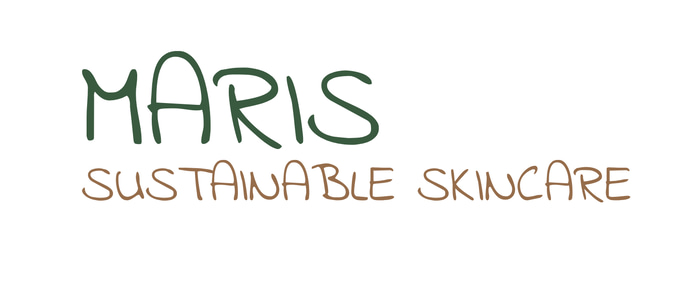Welcome to My Skincare Mirror Experiment!
I’m building this little webapp as a fun way to learn more about skincare and how different ingredients and routines affect our skin. Right now, it’s a personal project just me trying things out, experimenting, and gathering what I learn along the way.
Since skin is so personal and unique, I thought it’d be cool to share it with family and friends first to see how it works and get feedback. No pressure, just a space to track your skin, discover what ingredients do, and maybe learn a thing or two together.
Feel free to explore, try different routines, and keep notes on what works for you. I’m excited to grow this app and hopefully help everyone find their best skin.
Thanks for joining me on this journey! 💫
★★★★★
Rated 5 stars by family and friends haha
How to Use the Skincare Journal
Welcome! Here’s a quick guide to help you make the most of this skincare journal:
What You Can Do Here:
Track your daily skincare routine log the products you use and when you use them.
Note how your skin feels jot down any changes, improvements, or reactions.
Learn about key skincare ingredients discover what’s inside your products and what they do.
Get tips on layering products find out the best order to apply your skincare for maximum benefits.
Set personal skin goals whether it’s hydration, clearer skin, or anti-aging, keep your goals in mind.
Tips for Getting Started:
Be consistent try to log your routine every day or as often as you can.
Pay attention to your skin’s reactions note any sensitivities or improvements.
Don’t hesitate to experiment gently adjust your routine based on what you learn.
Use the ingredient guide if you’re curious about new products.
Remember, skincare is a personal journey. This journal is here to help you understand and care for your skin better, one step at a time.
Happy journaling!




Skin Types Guide
Understanding your skin type helps you pick the right products and build an effective routine.
Dry Skin
Characteristics: Flaky, tight, dull, prone to irritation
Needs: Rich hydration, barrier repair, gentle cleansing
Recommended Ingredients: Hyaluronic Acid, Ceramides, Oils, Shea Butter
Oily Skin
Characteristics: Shiny, large pores, prone to acne and blackheads
Needs: Lightweight hydration, oil control, non-comedogenic products
Recommended Ingredients: Salicylic Acid, Niacinamide, Gel moisturizers
Combination Skin
Characteristics: Oily in T-zone (forehead, nose, chin), dry or normal on cheeks
Needs: Balanced hydration, targeted treatments for different areas
Recommended Ingredients: Lightweight hydrating serums, gentle exfoliants, spot treatments
Normal Skin
Characteristics: Balanced, clear, few imperfections
Needs: Maintenance, protection, prevention
Recommended Ingredients: Antioxidants, Hydrators, Broad-spectrum SPF
Sensitive Skin
Characteristics: Easily irritated, redness, stinging
Needs: Gentle, fragrance-free, calming ingredients
Recommended Ingredients: Centella Asiatica, Allantoin, Panthenol, Oat Extract
Ingredient Guide
Hydrating Ingredients
Hyaluronic Acid
Function: Draws moisture into skin
Benefits: Plumps skin, reduces fine lines, hydrates without oiliness
Best For: All skin types
Source: Naturally found in human skin and connective tissue; commercially derived via bacterial fermentation
Glycerin
Function: Humectant that attracts and retains moisture
Benefits: Improves skin barrier, prevents water loss
Best For: All skin types, especially dry and sensitive
Source: Derived from plant oils (like soybean or coconut oil) or as a byproduct of soap making
Ceramides
Function: Replenish skin's natural protective barrier
Benefits: Prevent moisture loss, protect against environmental damage
Best For: Dry, sensitive, mature skin
Source: Naturally occurring lipids found in skin; often synthesized or extracted from plant sources like wheat or rice bran
Exfoliating Ingredients
Alpha Hydroxy Acids (AHAs)
Types include Glycolic, Lactic, Mandelic Acid
Function: Chemical exfoliation of surface dead skin cells
Benefits: Improves texture, brightens, reduces fine lines
Best For: Sun-damaged, mature, normal to dry skin
Source: Derived from fruits (glycolic from sugar cane, lactic from milk), and plant sources (mandelic from almonds)
Beta Hydroxy Acid (BHA)
Type: Salicylic Acid
Function: Oil-soluble exfoliant that penetrates pores
Benefits: Reduces blackheads, controls oil, calms inflammation
Best For: Oily, acne-prone, congested skin
Source: Naturally found in willow bark, sweet birch, and wintergreen plants
Polyhydroxy Acids (PHAs)
Types include Gluconolactone, Lactobionic Acid
Function: Gentle surface exfoliation
Benefits: Similar to AHAs but less irritating
Best For: Sensitive, reactive skin
Source: Derived from gluconic acid, which comes from glucose (corn
Brightening Ingredients
Vitamin C (L-Ascorbic Acid)
Function: Potent antioxidant
Benefits: Brightens, protects against free radicals, boosts collagen
Best For: All skin types (sensitivity varies)
Source: Derived from fruits and vegetables, commercially synthesized for stability
Niacinamide (Vitamin B3)
Function: Multi-tasking active
Benefits: Regulates sebum, brightens, strengthens barrier
Best For: All skin types, especially oily and acne-prone
Source: Derived from niacin (vitamin B3) found in meat, fish, grains, and synthesized
Alpha Arbutin
Function: Inhibits melanin production
Benefits: Fades hyperpigmentation, brightens complexion
Best For: Pigmentation-prone skin
Source: Extracted from bearberry plants and other botanical sources, or synthesized
Anti-Aging Ingredients
Retinoids
Types include Retinol, Retinaldehyde, Tretinoin
Function: Vitamin A derivatives that accelerate cell turnover
Benefits: Reduces fine lines, improves texture, clears acne
Best For: Aging skin, acne (start with lower concentrations)
Source: Derived from Vitamin A found in animal sources (like fish liver oil) or synthesized
Peptides
Function: Amino acid chains that signal skin to produce collagen
Benefits: Firms skin, reduces fine lines
Best For: Aging, sagging skin
Source: Synthesized chains of amino acids, often inspired by natural proteins
Coenzyme Q10
Function: Natural antioxidant that diminishes with age
Benefits: Protects against free radicals, energizes cells
Best For: Mature, sun-damaged skin
Source: Found naturally in mitochondria of cells, commercially extracted from yeast or synthesized
How to Layer Skincare Ingredients
Correct layering improves product absorption and effectiveness. Here’s the basic order:
1. Cleanser
Start with a clean face to remove dirt and oils.
2. Exfoliant (2-3 times weekly)
Use chemical exfoliants like AHAs or BHAs before other treatments.
3. Toner or Essence
Apply hydrating or treatment toners to prep skin.
4. Serums and Targeted Treatments
Start with the lightest (water-based) and move to thicker formulas. Apply actives like Vitamin C, Niacinamide, or Retinol here.
5. Eye Cream
Apply before heavier creams to avoid disturbing delicate eye skin.
6. Moisturizer
Seal in hydration; choose gel, lotion, or cream based on your skin type.
7. Face Oils (optional)
Apply last to lock in moisture.
8. Sunscreen (AM only)
Apply as the final step in your morning routine. Reapply every 2 hours if exposed to sun.
Timing Tips
Wait 1-2 minutes between layers for absorption.
For pH-dependent actives (Vitamin C, AHAs/BHAs), wait 15-20 minutes before the next step.
Apply retinoids to completely dry skin, waiting 20-30 minutes after cleansing.
Have questions? Want to share your advice or feedback? Drop a comment below!
We’d love to hear what you think and how we can make it better for you.
This is a fun little project where I’m learning how to build simple web apps while sharing useful skincare info. It’s still a work in progress, but I’m excited to experiment and improve with help from family and friends like you!
Become a Founding Insider
© 2025 Maris Speak Up. All rights reserved.
Your privacy is important to me. Rest assured, your email will never be shared or sold.
Info@marissustainableskincare.com
Our official email
Join our community of early supporters and get exclusive benefits when we launch our skincare brand. As a founding insider, you’ll be the first to hear about product updates, enjoy early access, and receive special rewards made just for our day-one members. Plus, you'll get skincare tips and behind-the-scenes content as we build something meaningful together.
